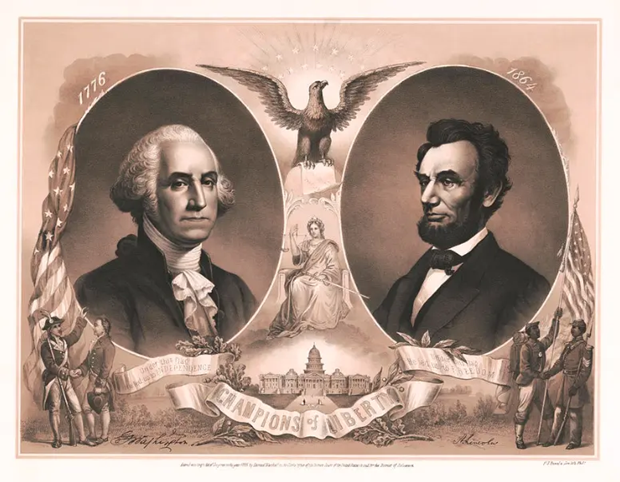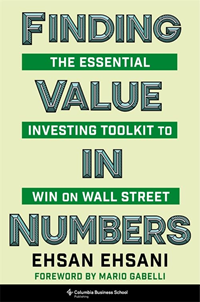The risk appetite in the bond market has picked up this year as investors grow more comfortable with the economic outlook and the path of interest rates. A set of bond ETFs through yesterday’s close (Feb. 24) highlights a clear trend so far in 2026: favoring government securities with longer maturities has been a winning strategy.
US Growth Slows in Q4, but Early Q1 Data Signals a Rebound
US economic growth posted a sizable downside miss in Friday’s fourth-quarter GDP report, but early Q1 nowcasts point to a rebound.
A Triad of Risk Factors Stalks Markets This Week
The resilience of global markets will be tested anew this week as investors grapple with the implications of three risks that could roil sentiment: slower economic growth, the Supreme Court’s ruling that President Trump’s tariffs are illegal, and the threat of a US strike on Iran.
Book Bits: 21 February 2026
 ● Mastering Gold and Silver Markets: Insights from a Legendary Bullion Bank Trader
● Mastering Gold and Silver Markets: Insights from a Legendary Bullion Bank Trader
Robert Gottlieb
Summary via publisher (Wiley)
In Mastering Gold and Silver Markets: Insights from a Legendary Bullion Bank Trader, veteran precious metals trader, Robert Gottlieb, delivers an insightful blend of memoir and education that covers the world of bullion trading from a banker’s perspective. The book covers his journey from working at a certified public accounting firm to his position as the Global Head of Precious Metals Trading and Sales at many of the largest bullion banks in the world. Gottlieb dives deep into the critical role played by bullion banks in the global precious metals ecosystem. He provides a detailed explanation of financial and futures markets and how they facilitate liquidity and hedging strategies for their clients.
Research Review | 20 February 2026 | Forecasting Returns
CAPE Ratios and Long-Term Returns
Rui Ma (La Trobe University), et al.
January 2026
We demonstrate that 10-year equity market returns are considerably more predictable in relation to price-earnings ratios than previously thought. The traditional approach involves relating the current index price level, based on current index components, to the index earnings of previous years, calculated using those years’ components. When we estimate the cyclically adjusted price-earnings (CAPE) ratio, ensuring that index component prices and earnings are aligned, and apply a superior regression approach, out-of-sample R 2 values are over 50%. The Component CAPE ratio weights individual stock CAPE ratios by their market capitalization, whereas the traditional CAPE ratio is more closely aligned with earnings weighting.
US Q4 Growth Set To Extend Streak As K-Shaped Risk Lurks
The US economy is on track to report a third straight quarter of growth in tomorrow’s delayed GDP update for Q4, based on the median of a set of nowcasts compiled by The Capital Spectator. The pace is expected to slow from Q3, but the increase will be strong enough to keep last year’s chatter about recession on the fringes of economic analysis.
Disinflation Hints At More, Earlier Fed Rate Cuts
Consumer inflation was softer than expected in January, but the news hasn’t changed the market’s outlook for the Federal Reserve to keep its target interest rate steady until June. But the bond market looks poised to test challenge the timetable by pricing in an earlier rate cut.
US 10-Year Treasury Yield Continues To Trade Near “Fair Value”
In line with recent history, the benchmark 10-year yield remained close to its “fair value” estimate in January, based on the average of three models run by CapitalSpectator.com.
Happy Presidents Day!
 By excecutive order, the world headquarters of The Capital Spectator is closed today. The usual consultations reconvene tomorrow (Tuesday, Feb. 17), and without the need for congressional approval. During the interregnum, check out this week’s edition of The ETF Portfolio Strategist, our sister publication. Meantime, I hereby veto any legislation to engage in work for the remainder of the day.
By excecutive order, the world headquarters of The Capital Spectator is closed today. The usual consultations reconvene tomorrow (Tuesday, Feb. 17), and without the need for congressional approval. During the interregnum, check out this week’s edition of The ETF Portfolio Strategist, our sister publication. Meantime, I hereby veto any legislation to engage in work for the remainder of the day.
Book Bits: 14 February 2026
 ● Finding Value in Numbers: The Essential Investing Toolkit to Win on Wall Street
● Finding Value in Numbers: The Essential Investing Toolkit to Win on Wall Street
Ehsan Ehsani
Summary via publisher (Columbia U. Press)
To be successful as an investor, one needs a framework. And no investing framework works without numbers. Although quantitative methods can be intimidating, they provide a major boost to the quality of analysis. Written for readers without a technical background, Finding Value in Numbers is an engaging and practical guide to how thoughtful investors can use numbers—not just for the sake of crunching data but for making better decisions. Using a value investing perspective, Ehsan Ehsani shows how to deploy quantitative tools to identify and analyze investment prospects, demystifying the math that points to overlooked opportunities in the stock market, other securities, and beyond.